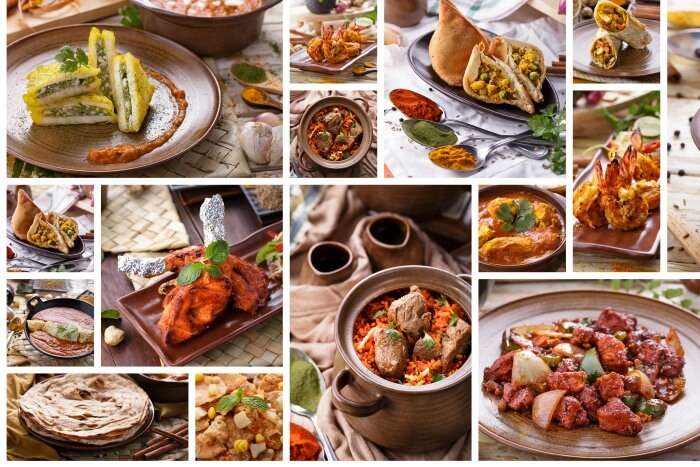


As the capital city of Poland prepares to welcome Indian Prime Minister Narendra Modi, the growing demand for Indian cuisine in the country has caught attention. With more than 45 Indian restaurants scattered across Poland, the popularity of dishes like dosa and butter chicken among Polish diners is reminiscent of their travel experiences in India. As Modi's arrival marks the first official visit of an Indian Prime Minister in 45 years, Warsaw is excitedly anticipating the influence of Indian food and culture on their city.
Indian Cuisine Takes Center Stage in Poland Ahead of Modi's Visit
As India's Prime Minister Narendra Modi prepares to visit Warsaw, the capital of Poland, the city is buzzing with anticipation not only for political discussions but also for the arrival of India's vibrant culinary traditions.
Growing Popularity of Indian Cuisine in Poland
Over the past decade, Indian cuisine has gained immense popularity in Poland. The number of Indian restaurants has soared to over 45 across the country, catering to a growing demand for authentic Indian flavors.
Indian dishes like dosa, a savory pancake made from fermented lentil and rice batter, and butter chicken, a creamy and tangy chicken dish, have become favorites among Polish diners. Many restaurants have also introduced fusion dishes, blending traditional Indian spices and techniques with local ingredients.
Modi's Visit and Cultural Exchange
Modi's visit, the first official trip by an Indian Prime Minister to Poland in 45 years, is expected to further strengthen the ties between the two countries and showcase the cultural vibrancy of India. Warsaw is eagerly anticipating the arrival of Indian chefs and cultural performers, who will share their culinary and artistic traditions with the city.
Top 5 FAQs
1. Why is Indian cuisine so popular in Poland?
Indian cuisine offers a diverse range of flavors, spices, and textures that appeal to Polish taste buds. The increasing popularity of travel to India has also introduced Poles to authentic Indian cuisine and created a demand for it back home.
2. What are the most popular Indian dishes in Poland?
Dosa, butter chicken, tikka masala, biryani, and naan bread are some of the most popular Indian dishes enjoyed by Polish diners.
3. Is Indian food widely available in Warsaw?
Yes, Warsaw has a wide selection of Indian restaurants located in various parts of the city, offering a range of cuisines from different regions of India.
4. Can you recommend any Indian restaurants in Warsaw?
Some recommended Indian restaurants in Warsaw include: Bombay Masala, Taj Mahal, Ganesh, India Gate, and Kama Sutra.
5. What cultural events are planned during Prime Minister Modi's visit?
Cultural events planned during Modi's visit include exhibitions of Indian art, performances by Indian musicians and dancers, and food and cultural festivals.

Pakistan's Prime Minister, Shehbaz Sharif, caused a major stir in Turkmenistan when he decided to gate-crash a meeting between Russian President Vladimir Putin and Turkish President Recep Tayyip Erdogan after waiting for 40 minutes. This impulsive move showcases Pakistan's increasing diplomatic insecurity and diminishing geopolitical clout. As Sharif struggles to secure meaningful engagements with major powers, he also faces domestic crises and is under the control of Army Chief Asim Munir. Meanwhile, the event in Turkmenistan marked a milestone for the country's declaration of neutrality and its efforts to maintain independence from both Western and Russian influence.

During an international forum in Turkmenistan, Pakistan's Prime Minister Shehbaz Sharif faced an embarrassing diplomatic moment as he walked into a private meeting between Russian President Vladimir Putin and Turkish President Recep Tayyip Erdogan. Sharif had been waiting for over 40 minutes for his scheduled meeting with Putin, causing him to enter the ongoing conversation between the two leaders. The incident, captured on video and shared by RT India, has triggered widespread mockery on social media with users making jokes about Sharif's actions. This comes as Pakistan attempts to strengthen its ties with Russia, while Putin maintains a closer relationship with India.

The latest bout of border fighting between Thailand and Cambodia has escalated, with hundreds of thousands of civilians displaced and casualties on both sides. The renewed skirmishes have shattered a ceasefire proposed by U.S. President Donald Trump in July. The leaders of both countries have promised to continue their aggressive stance, causing further tension and concerns for the safety of civilians. This has even resulted in the withdrawal of Cambodia's team from a regional sporting event.

Notorious Naxalite commander Ramdher Majji, along with his group, surrendered to the police in Chhattisgarh. This surrender marks a milestone in the fight against Naxalism, as the state's Deputy Chief Minister states that 80 percent of the menace has been eradicated. With the government's resolved aim to eliminate Naxalism by 2026, the country is heading towards a permanent solution to this long-standing issue. Home Minister Amit Shah also noted the significant progress made in reducing Naxal violence, with only 10 percent of the nation's population currently affected compared to 120 million people in the past.

After the tragic fire at their club in Goa, owners Gaurav and Saurabh Luthra have been detained in Thailand and are expected to be brought back to India soon. The Indian agencies have been in constant communication with Thai authorities and have managed to locate the brothers outside the main city area. With their detention, the process for their deportation has been initiated and Indian agencies are coordinating with Thai authorities for their return. The article also explains the general procedure for deportation of foreigners from Thailand under immigration laws.

Two years after the shocking death of Dawn Sturgess from Novichok poisoning, a public inquiry has released its final report. The report, overseen by retired Supreme Court justice Lord Hughes of Ombersley, examined whether British officials had taken adequate precautions to prevent the attack on ex-spy Sergei Skripal and his daughter Yulia in March 2018. The inquiry also investigated whether Ms. Sturgess's death could have been avoided with timely public warnings about abandoned objects. Good Morning Britain correspondent Richard Gaisford reported live from Salisbury, where the attack first came to light, to reveal the disturbing findings of the inquiry.

The Indian Air Force (IAF) has found a solution to maintain its aging Jaguar fleet by obtaining over 20 retired aircraft from the Oman Air Force. These jets will be dismantled and used as spares, as global production of Jaguar has ceased. With this transfer, India will become one of the few countries to still operate the Anglo-French supersonic attack aircraft. The collaboration between India and Oman in this regard reflects their robust defense partnership.

In a monumental decision, UNESCO has officially named India's beloved festival of lights, Deepavali, to its prestigious Intangible Cultural Heritage List during a committee meeting at the iconic Red Fort in Delhi. The news was met with joyous celebrations and performances, with Prime Minister Modi expressing his pride and noting the global impact of Deepavali's inclusion. This marks the sixteenth element from India to be inscribed on the Representative List, solidifying the country's rich cultural heritage.

India's festival of lights, Deepavali, has been added to Unesco's list of Intangible Cultural Heritage, following in the footsteps of Durga Puja. Prime Minister Narendra Modi expressed his delight at the nomination, stating that the festival is closely tied to India's culture and ethos. The nomination process for Deepavali involved diverse communities and experts, showcasing the festival's reach beyond the country, as it joins India's 15 elements already on Unesco's list.

The Telangana Rising Global Summit 2025 kicked off at Bharat Future City with an impressive lineup of guests, including Chief Guest Governor Jishnu Dev Verma and film actor Nagarjuna. Attendees were impressed by the interactive robot welcoming guests and Chief Minister Revanth Reddy, who was accompanied by actor Nagarjuna. The summit also saw the presence of national and international dignitaries, making it a star-studded event. To add to the festive atmosphere, a specially composed song celebrating Telangana Rising was also featured during the opening ceremony.